During our trips to the library I can usually find my 9-year-old between dewey decimals 510 and 520. After all, that's where the math reference books are. Over the last few years we have collected quite a number (pun!) of math books. These are some of my son's favorites, and frankly, I've found them quite helpful when trying to keep up with him!
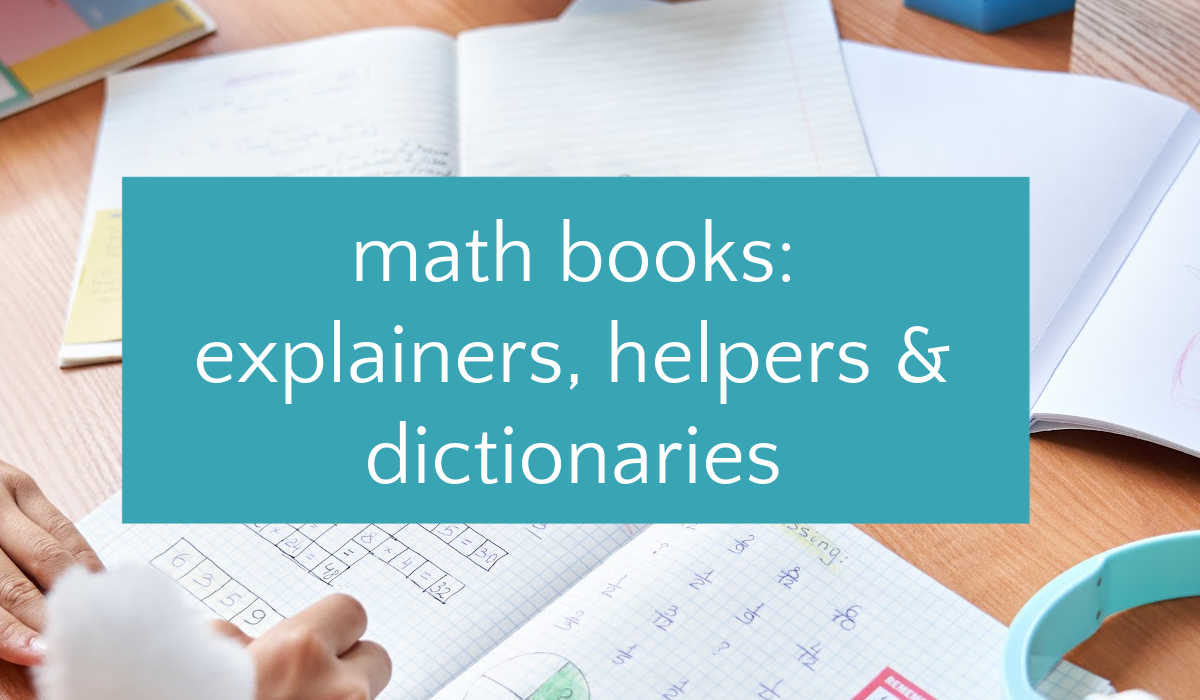
(Note: this post contains affiliate links that earn from qualifying purchases.)
Also for your little math lover:
Math Reference Books: Dictionaries and Explainers
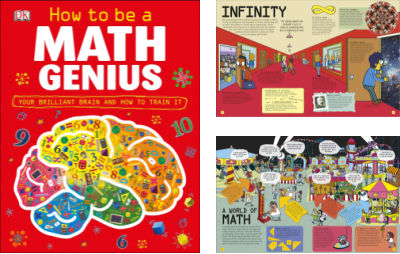
How to Be a Math Genius is the best, most useful and most fun book on this list. It is loaded with information made accessible for young minds through asides, illustrations, and real-life and historical examples. There are activities, puzzles and brain twisters, even science experiments that use math. The text encourages kids to think outside the box and to see math in the world around them, not just on a worksheet in front of them. Is that a glowing enough review?
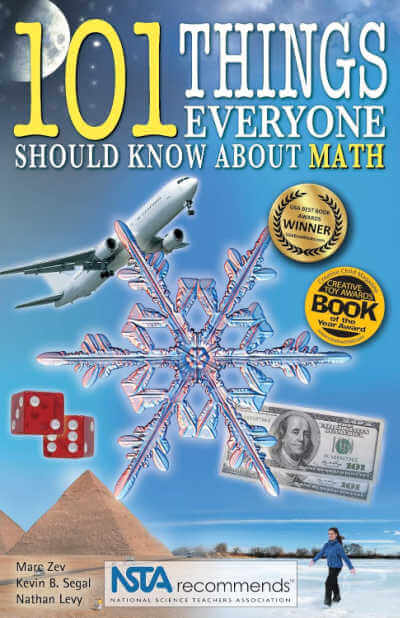
101 Things Everyone Should Know About Math. From the title, you might expect this book to be a series of facts. However, each "thing you should know" is actually presented in the form of a math word problem. These questions are divided into topics like "health and food", "travel" "nature, music and art." I like how this format encourages kids to think about math as it is applied in real life situations. After all, math is everywhere. Diagrams and illustrations help kids visualize the concepts. The first half of the book contains the questions and the second half is devoted to explaining the answers. I'm not a homeschooler, but I imagine this book would be extremely useful to those parents.
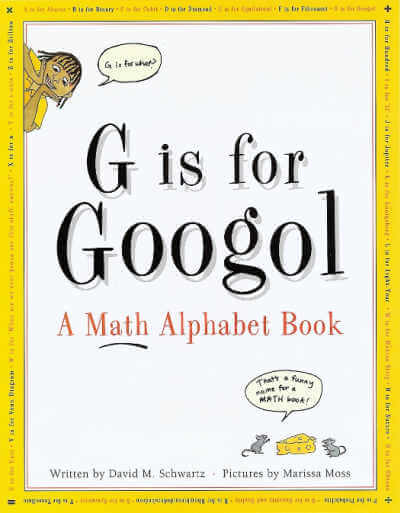
G Is for Googol: A Math Alphabet Book. After reading this book, my son tried very hard to explain to me how binary numbers are formed. I'm sure his explanation was spot on, but I still couldn't wrap my head around what he was saying. As you have already deduced from the title (because you, too, are a genius) this book contains a math term for each letter of the alphabet. This book is filled with in-depth information and unless you have a math-crazed kid, I suggest it for ages 8 (at least!) and up.
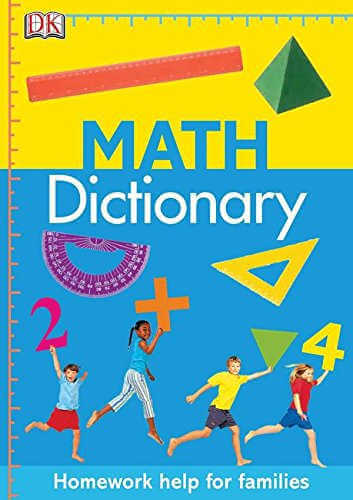
Math Dictionary: Homework Help for Families. Although it was my son who brought this book home, it is a useful reference for parents. If you have a child in public school you may have noticed that your child is learning a methodology that is different than what you learned. I'm fortunate that I don't yet have to help with math homework, but it sure is nice to know what's going on!
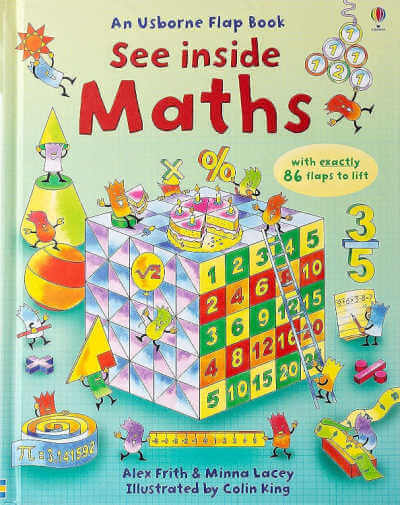
See Inside Maths. This is one of my favorite math books on the list because it is interactive. There are flaps to lift, cubes to build, even a game to play. It's a book for kids to explore and it emphasizes the practical side of math, while still keeping things fun. It shows kids how math can do something for them, such as help them out at the grocery store or help them play games.
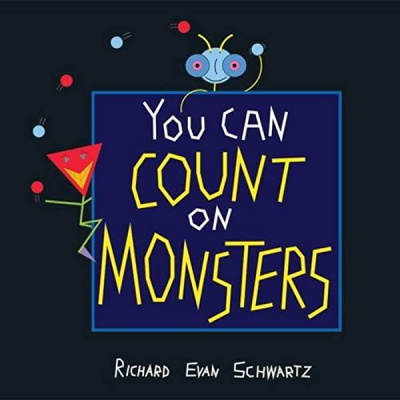
You Can Count on Monsters: The First 100 Numbers and Their Characters. This was one of the first math books my son read. It's a visual accounting of numbers based on their prime factor. (I really hope I am getting all this lingo correct!) Each page consists simply of a number and its corresponding illustration.
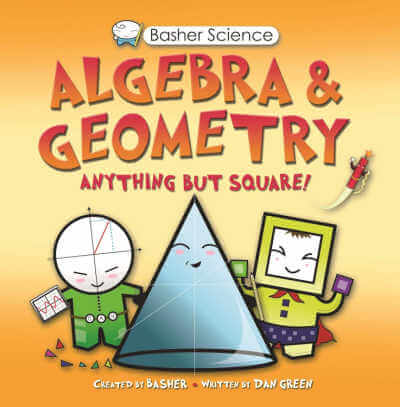
Algebra and Geometry is part of a series of science books on a wide range of topics. Mathematical elements are characters who introduce themselves and describe how they perform their functions. Personally, I didn't really like the style of this book but my son liked it a lot and I defer to him in all things mathematics. However, I can see how the book is appealing to kids and may make math fun for kids who are struggling.
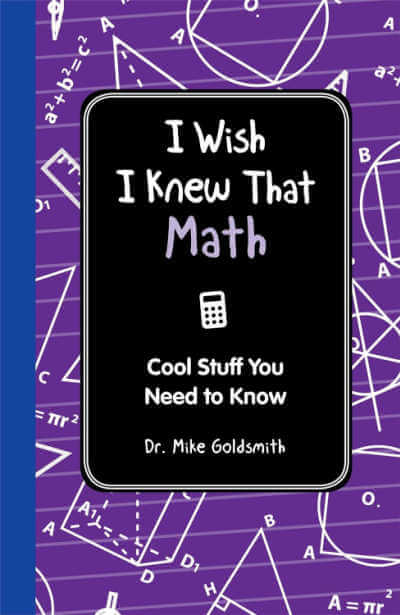
I Wish I Knew That: Math: Cool Stuff You Need to Know. I was surprised to find this was published by Reader's Digest. My experience with Reader's Digest consists of flipping through their tiny little magazine at my grandparent's home when I was a kid. There was nothing in their home to read but the Bible and Reader's Digest! Author Goldsmith has condensed a lot of ideas into short, easily digestible (had to get that in there) trivia bits. It's not an in-depth book by any means, but fun to skim through. I recommend it for your library card.
More math books:
- Math chapter books and short story collections
- Math picture books - elementary aged read alouds
- Preschool math books
- Advanced concept math picture books



Pragmatic Mom says
What a great list! My son will love it and they are new to us!!! Thank you Erica!!!
Natalie PlanetSmartyPants says
Love the list! My daughter enjoyed How to Be a Math Genius. I have to look for Basher book. I am adding this post for my unusual round up this week - entries that made me look.
Deceptively Educational says
Erica, this list is fabulous! My 8 year old would love, love, love these. I can't wait to put a few in my Amazon cart. Thanks for sharing at the After School Linky!
MaryAnne says
Thanks for another great list! I used to read The Reader's Digest at my grandparents' house - mostly the funny stories.
Alison at NOVA Frugal Family says
We just moved from the math section to 523 to find some books about space. I haven't read those books so when my son is done with space, I will have to look those up 🙂 Thanks for the great list.
Erica MomandKiddo says
So funny that we know the library according to dewey decimal number!